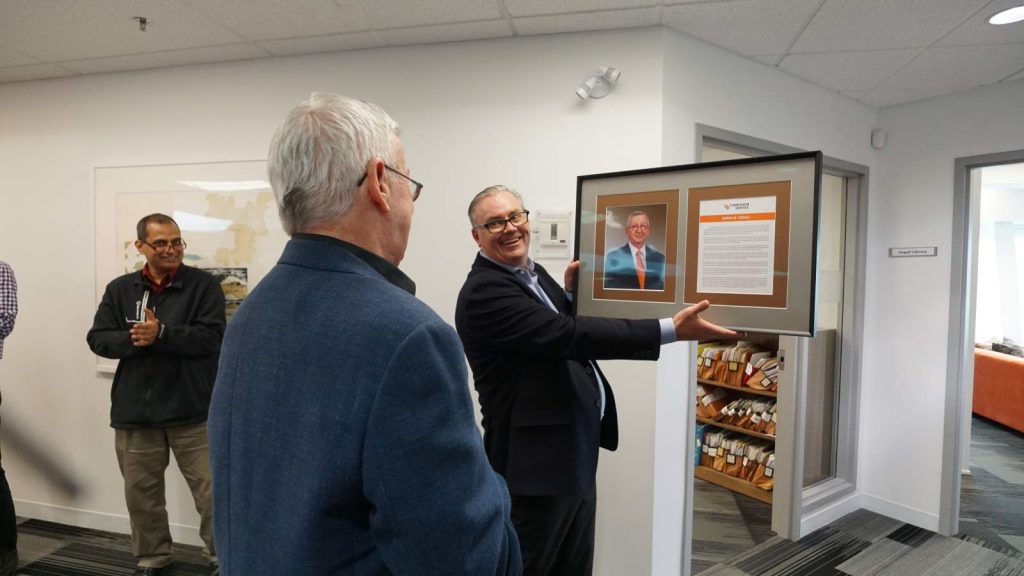Since our founding Corrosion Service has and remains a leader in the corrosion control industry, supporting the various industries in North America and around the World ensuring asset integrity by providing responsible engineering services.
As part of our continued commitment, we would like to welcome you to our electronic Library as the place to view our various technical papers written and presented since 1950 supporting, educating and advancing the corrosion industry advancement.
On your left you can select the author of interest to view all papers presented or enter a search by topic. For each, an abstract is provided and a download link for your review. We would be please to assist if you have any questions and feel free to contact us.

The Corrosion Service Library
We converted a prime corner office into a Library at our Head Office and dedicated the room to Sorin Segall because of his commitment to Corrosion Service, the numerous papers presented, the engineering mentoring within Corrosion Service and to our industry. We would be pleased for you to come and view this comprehensive library that includes various text books, relevant publications, all NACE Materials Performance magazines presented since first publication, technical bulletins and various other related corrosion related print material.
Our Technical Papers For Download
The new NACE Standard SP21424-2018 provides a set of simple criteria for assessing the risk of AC corrosion on existing collocations between powerlines and cathodically protected pipelines. However, the task of developing design criteria for new collocations is left to the pipeline operators. This paper […]
Trenchless technologies are increasingly used to install pipelines at crossings with environmentally sensitive features, highways, etc. For deep crossings installed in rock via horizontal directional drilling (HDD), there has been concern within the pipeline industry about the effectiveness of conventional monitoring and cathodic protection techniques. […]
A field study was conducted by Corrosion Service and TransCanada Pipelines to determine the influence of the AC current density and of the coating holiday size on the rate of AC corrosion. This field study involved burying steel coupons of three different sizes (i.e., 1 […]
Techniques for telluric compensation of close-interval potential survey (CIPS) data have been known and used in the pipeline industry for many years. However, in recent years, operators have begun to question the effectiveness of surveys performed during periods of significant telluric activity and, in some […]
Pipeline integrity is embracing the technologies that have been produced by the Big Data revolution. Database access, machine learning algorithms, and analytics tools are no longer the domain of researchers and IT experts, and can be easily deployed to improve our use of pipeline integrity […]
The ability to adequately monitor and protect long, deep trenchless crossings installed in rock is critical to ongoing safe operation of pipelines. This paper is a case study of a long horizontally directionally drilled crossing that was subject to significant coating damage at installation. The […]
Anodic protection is a powerful technique used to mitigate liquor tankage corrosion. The large currents required to protect a typical vessel led to problems in the first generation of commercial systems. This article describes what caused the problems. Part II (March 2002 MP) will discuss […]
Recent close-interval potential surveys have raised concerns about the accuracy of potential measurements on some older pipelines. Two significant sources of error were identified: metallic IR-drops and equalization currents. These resulted in measured on and off potentials which differed by hundreds of millivolts from the […]
